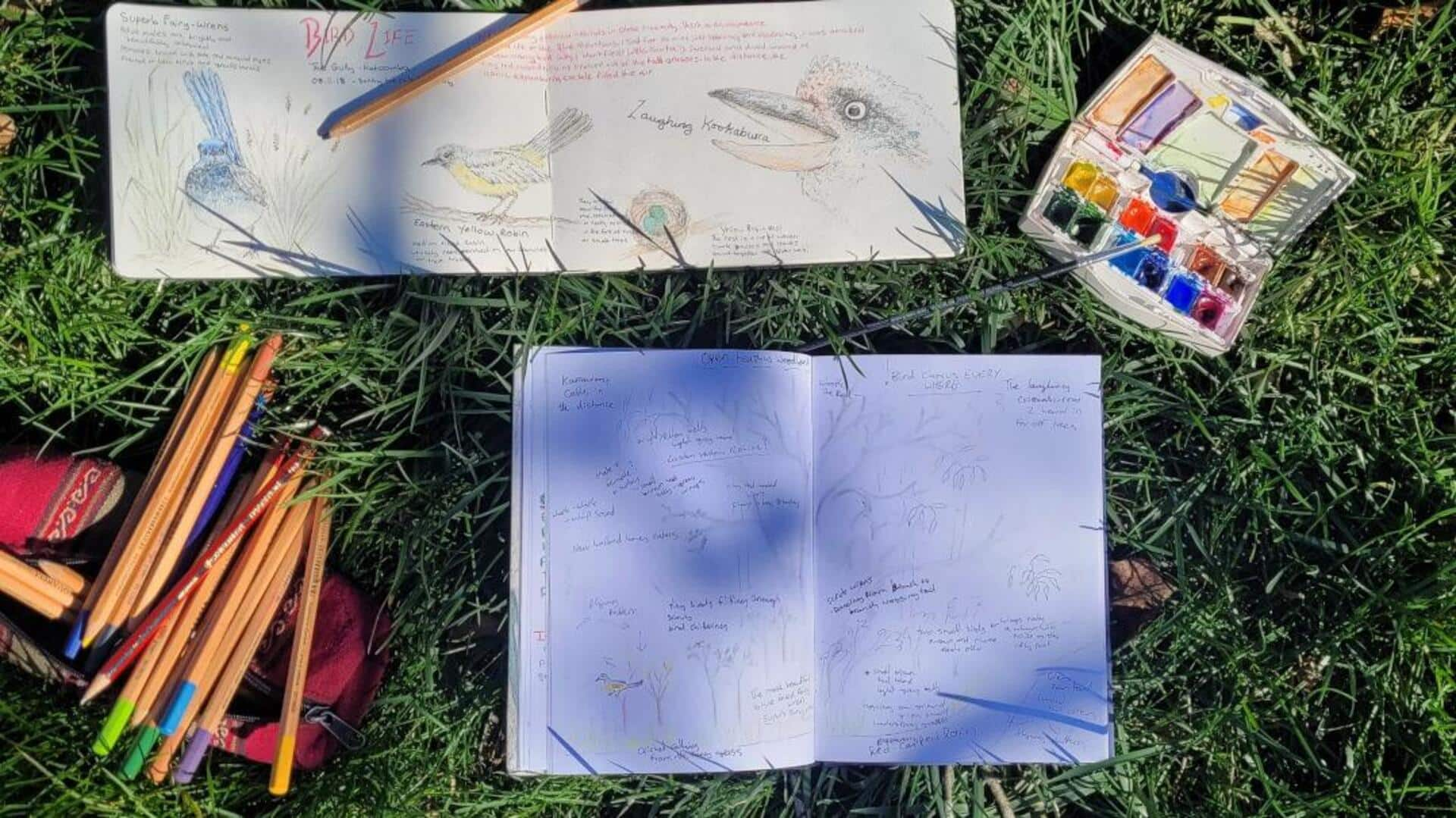
Nature journaling: A guide to self-reflection
What's the story
Nature journaling is a simple yet powerful tool to explore self-reflection. By connecting with nature and documenting experiences, one can gain valuable insights into their thoughts and emotions. This practice encourages mindfulness and observation, allowing individuals to connect with their surroundings and themselves. Whether you're a seasoned journaler or a beginner, nature journaling can offer a unique perspective on personal growth and understanding.
Tip 1
Choosing the right location
Selecting an appropriate location is key to effective nature journaling. Look for places where you feel comfortable and safe, be it a local park, garden, or even your backyard. The idea is to find a spot where you can sit quietly and observe without distractions. The right environment helps you focus on your thoughts and observations, making the process more rewarding.
Tip 2
Observing details in nature
Paying attention to details is key in nature journaling. Focus on elements like leaf patterns, bird calls, or weather changes. Noticing these small details can help you develop a deeper connection with nature and yourself. It encourages mindfulness by making you present in the moment, while also giving you material for your journal entries.
Tip 3
Reflective writing techniques
Incorporating reflective writing techniques into your journal can deepen your self-exploration. Try writing prompts like "What emotions do I feel when I see this?" or "How does this scene relate to my life?" These questions prompt introspection and help you understand your feelings better. The process of writing itself can be therapeutic, giving you clarity on your thoughts.
Tip 4
Using sketches to enhance insights
Adding sketches to your journal can enhance the experience of self-reflection. Drawing forces you to look closely at what you are seeing, and interpret it in your own way. It doesn't matter if you are good at it or not; the idea is to express yourself through visuals. Sketching also gives a break from writing, and lets creativity flow in a different way.
Tip 5
Setting regular journaling times
Establishing regular times for nature journaling makes it a habit, and not an occasional activity. Consistency is key in developing any skill or practice, including self-reflection through nature journaling. Try setting aside specific times every week or day, depending on your schedule, to ensure that this practice becomes an integral part of your routine.